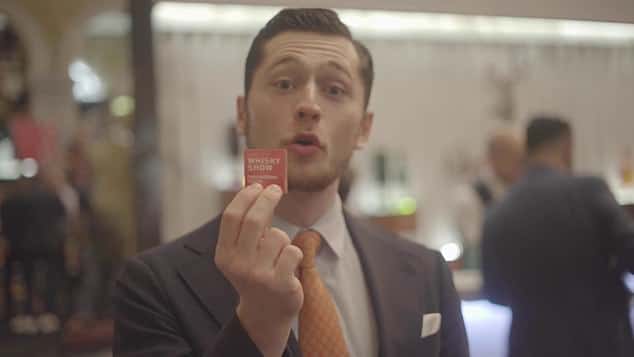While this man admits to defrauding investors in the largest whisky fraud in history, the MoS discovers a troubling trend in similar cash scams that have affected innocent people financially and cruelly.
In a polished advertising video, Casey Alexander raises a whisky drink to celebrate its rich flavours and the enormous earnings it may bring in for the savvy investor. “It has what is termed an exothermic reaction, and that opens up the flavour components inside,” he says as he drops water from a pipette into his dram.
He warms to his topic as he introduces himself as a senior wealth manager at Vintage Whisky, a company whose core values are honesty and integrity, and talks about the handsome rewards available from the “glamorous and lucrative” market for rare Scotch and high-quality single malts.
The video clip makes it simple to understand why people would be willing to part with their money and savings, drawn in by the promise of fantastic returns.
The promises, however, turned out to be little more than fool’s gold, despite the presentational shine. Alexander testified last week in a US court that he had conned 150 elderly investors out of $13 million (or £10.5 million) through “aggressive and manipulative techniques,” the largest whisky scam the world has ever seen.
He cold-called retirees, promising enormous earnings that never materialised, while presenting Vintage Whisky as an “expert in acquiring the most difficult to acquire and rarest single malt Scotch whisky casks.”
The 26-year-old might spend the next 20 years behind bars. Although the FBI was able to end his convincing scheme, more fraudulent schemes of similar nature are emerging in the UK due to the increasing popularity of Scotland’s national drink.
Experts have cautioned that because the unregulated whisky barrel market is, would-be investors are vulnerable to scams.
In the meantime, victims of these frauds have reported to The Scottish Mail on Sunday that they lost thousands after falling for what they now realise was a too-good-to-be-true investment.
Mark Littler, a market analyst and trader for Whiskies, stated: “This significant case in the US shows how real the problem of whisky barrel fraud is.
Although historically a rewarding investment, an increasing number of outright frauds aim to defraud would-be buyers of their hard-earned money.
While Scotch can be an advantageous investment in some situations, there has been an increase in whisky cask scams.
Rare whisky bottles have increased in value by 540 per cent in the last ten years, quicker than any other collectible luxury item like watches, fine art, or vintage vehicles. Also, as the price of individual bottles has increased, so has an interest in purchasing entire casks.
The idea is straightforward: purchase a cask of premium single malt, either directly or through a broker, and then wait. The more time a spirit matures in a barrel, the more valuable it is conceptually.
Although the casks can be traded at any age, perhaps at a profit, the value is only realised when the whisky is bottled and sold.
Potential returns on ethical and wise investments can be far higher than banks’ meagre interest rates on savings accounts.
Cask whisky is also exempt from capital gains tax because of a peculiarity in HMRC laws. Yet, fraud has found a home in the system.
Due diligence and communication with the warehouse where the cask will be held are necessary to ensure that all information on documents is accurate. Most investors never really take control of the casks they purchase.
In other instances, investors can wind up purchasing subpar spirits that will never increase in value.
The investor is only duped in the most egregious cases, such as the most recent one in the US when money is given in exchange for whisky casks that don’t exist.
Alexander, who is from Ohio but was born in the UK, cold-called affluent retirees and convinced them to pay up to £246,000 on the promise that their investments in rare wines and whiskies would quadruple in value in three years.
The scam artist asserted that his business could obtain the “rarest single malt Scotch whisky casks.”
The Vintage Whisky website gave off the impression of authenticity and featured name-checks for popular labels like Ardberg, Glenfiddich, and Macallan. If prospective customers purchased more of the beverage, they would receive an invitation to a party in Scotland for “high-end investors.”
However, none of his victims received the promised returns, and when they attempted to collect their money, they were either ignored or given lame justifications.
The FBI became involved after the son of an 89-year-old from Ohio contacted them, sparking an international investigation.
Alexander, from Stoke Newington, London, last week admitted conspiracy to commit wire fraud and faces up to 20 years in jail and a fine US of up to $250,000 (£201,000).
Meanwhile, there are claims that whisky scams are on the rise closer to home.












